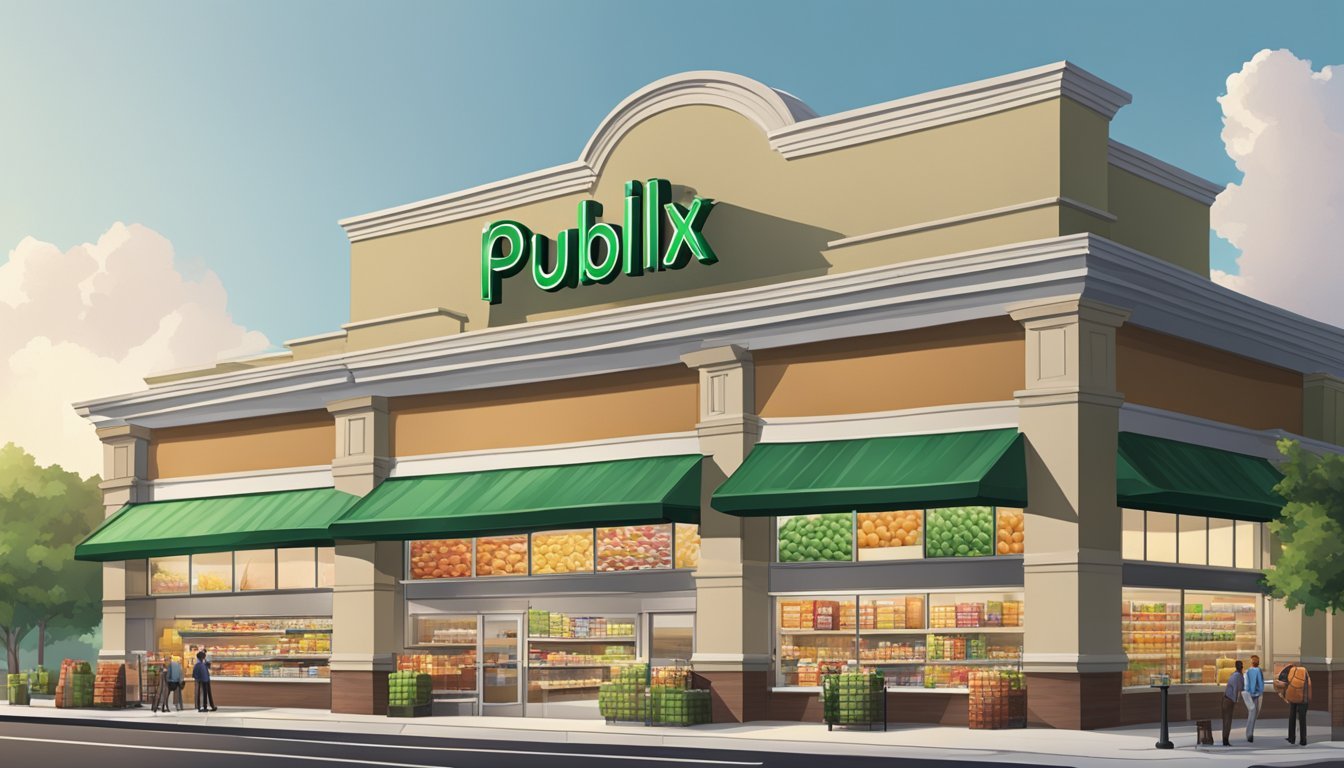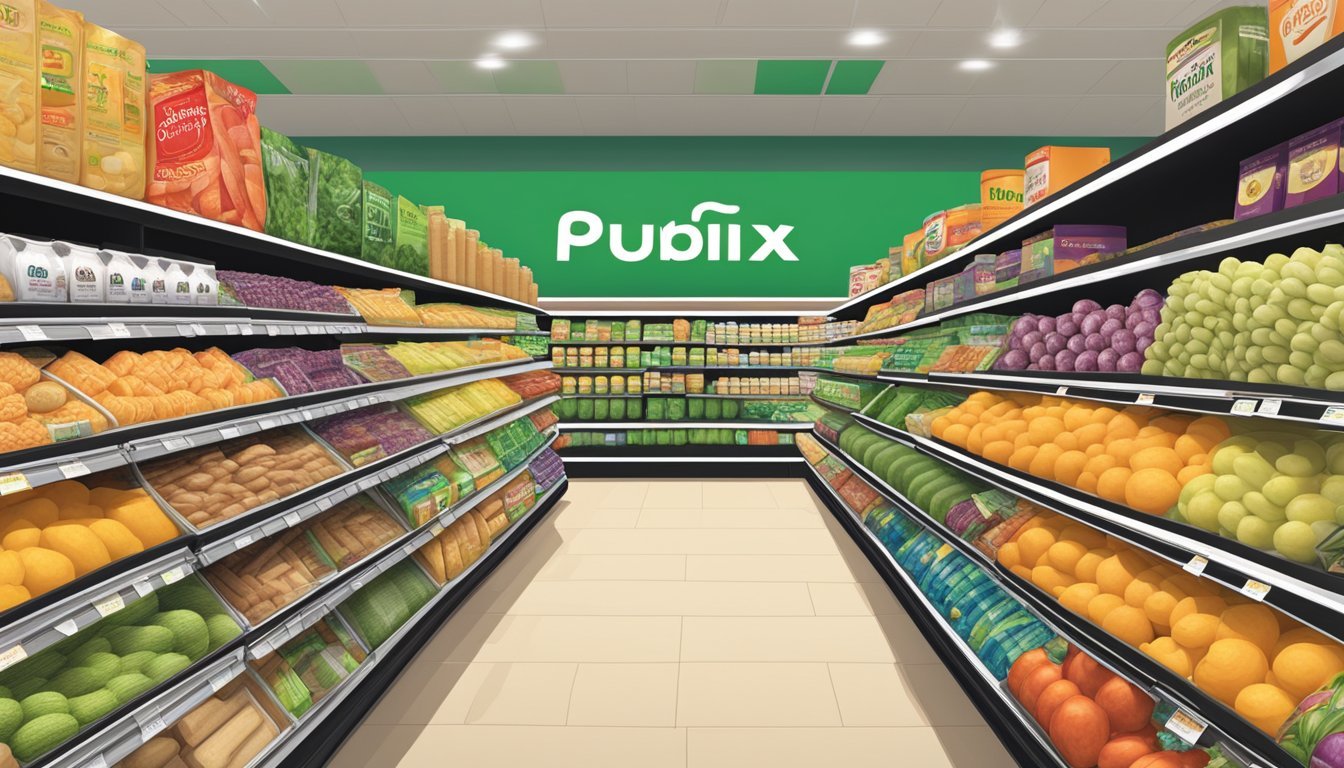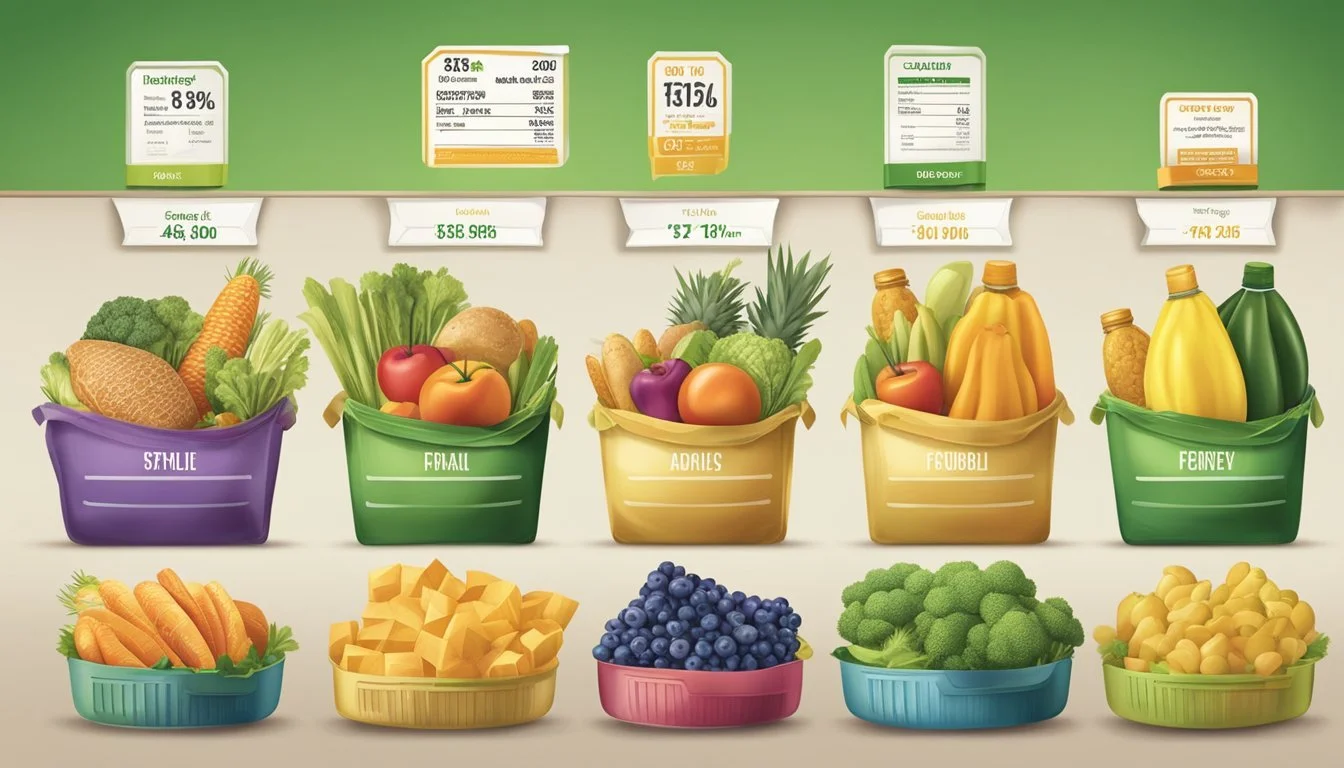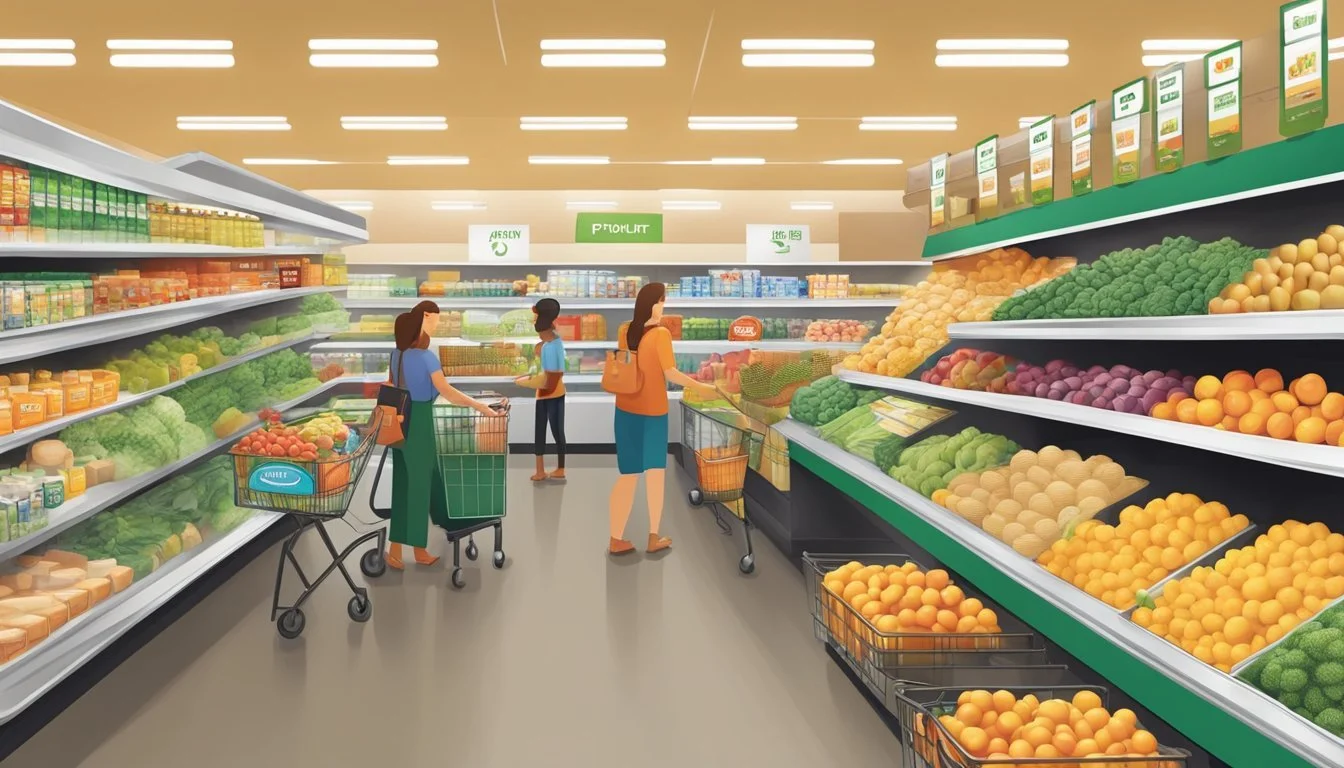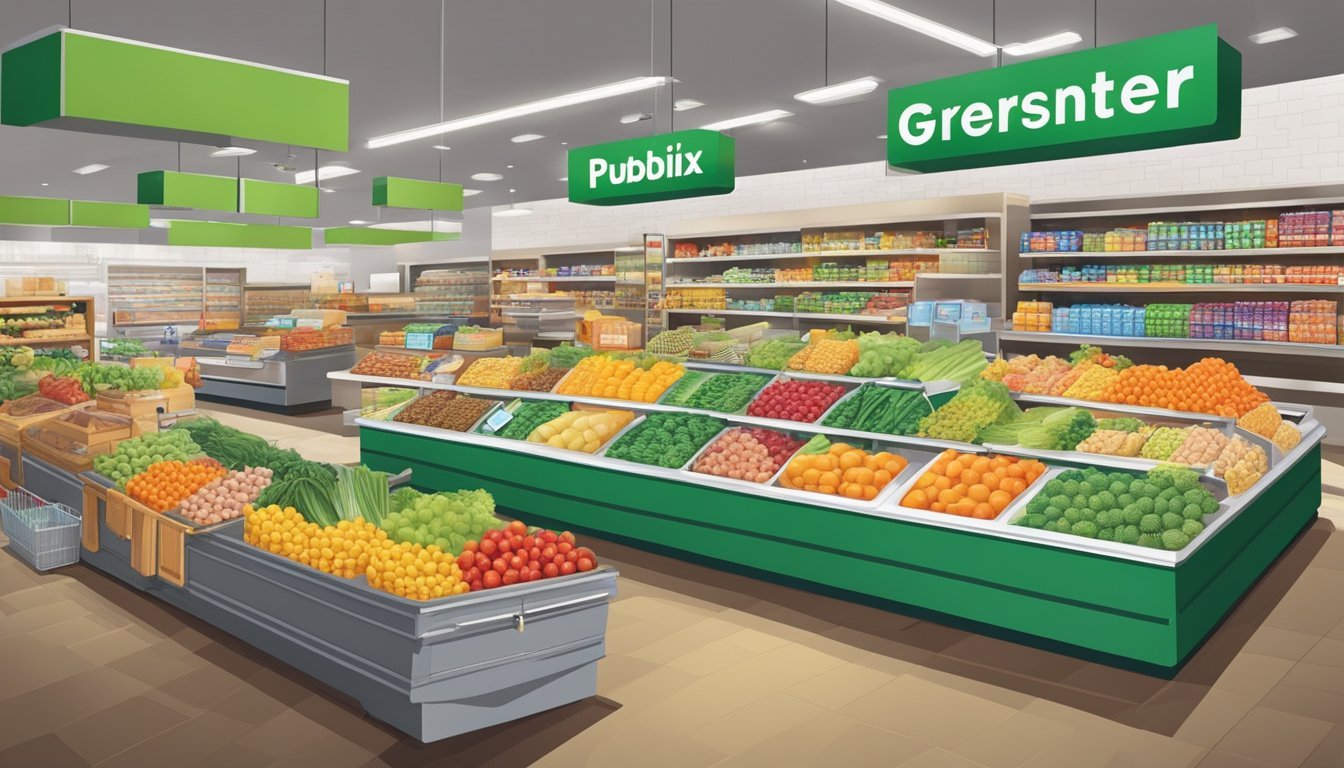Is Giant Food Cheaper Than Publix?
A Price Comparison of Popular Grocery Chains
Grocery shopping can be a significant expense for many households, prompting consumers to seek out the best deals. Two popular supermarket chains, Giant Food and Publix, often come up in price comparisons.
Giant Food is generally less expensive than Publix for most grocery items. While both stores offer quality products, Giant Food tends to have lower prices on everyday essentials. This price difference can lead to substantial savings over time for regular shoppers.
Publix is known for its customer service and store-brand quality, but these factors often come with a higher price tag. Giant Food, on the other hand, focuses on providing competitive prices across a wide range of products. Shoppers looking to stretch their grocery budget may find better value at Giant Food compared to Publix.
Overview of Grocery Pricing
Grocery pricing is influenced by various factors and differs between retailers. Stores like Giant Food and Publix employ distinct pricing strategies to attract customers and maintain profitability.
Factors Influencing Prices
Supplier costs, transportation expenses, and market competition impact grocery prices. Store location affects pricing due to varying operational costs and local economic conditions. Seasonal fluctuations in produce availability can cause price changes. Large chains often negotiate better deals with suppliers, potentially leading to lower prices. Store brands typically cost less than national brands, offering savings to budget-conscious shoppers.
Grocery Stores as Price Determinants
Retailers set prices based on their business models and target demographics. Some focus on everyday low prices, while others use frequent sales and promotions. Loyalty programs and digital coupons can provide additional savings. Store size and product selection influence pricing strategies. Specialty and organic items usually carry higher price tags.
Kroger, the largest U.S. supermarket chain, ranked third for overall value in a recent study. It offered the cheapest organic produce among major retailers. Aldi consistently provides low prices across various product categories. Price comparisons between stores can reveal significant differences, especially for staples like milk and chicken.
Comparative Analysis of Giant Food and Publix
Giant Food and Publix offer distinct shopping experiences with varying price points and quality standards. Their strengths and weaknesses become apparent when examining specific product categories and considering the overall value proposition for consumers.
Price Comparison Metrics
Giant Food generally offers lower prices on many common grocery items compared to Publix. A basket of staple products like bread, milk, eggs, and produce typically costs 5-10% less at Giant Food. However, this gap narrows during Publix's frequent sales and promotions.
Giant Food's store brand products are often priced 15-20% below national brands, while Publix's private label items usually come in at a 10-15% discount. Both chains offer digital coupons and loyalty programs, but Giant Food's rewards system tends to provide more substantial savings over time.
Weekly specials differ between the two retailers. Giant Food focuses on deeper discounts on fewer items, while Publix offers a broader range of moderately discounted products.
Quality and Price Trade-offs
Publix has built a reputation for higher quality, particularly in its fresh departments. Their produce, bakery, and deli sections consistently receive better ratings from customers. This quality comes at a price premium of about 7-12% compared to Giant Food.
Giant Food maintains competitive quality standards but places a greater emphasis on value pricing. Their meat department offers comparable quality to Publix at slightly lower prices. Both chains source local products, but Publix tends to have a larger selection of regional specialties.
Customer service is another area where Publix excels, often ranking higher in satisfaction surveys. This enhanced shopping experience factors into the overall value equation for many consumers.
Price Variation by Product Categories
Dry goods and packaged foods show the smallest price differences between the two chains, typically within 3-5% of each other. Giant Food usually has an edge in this category.
Fresh produce prices can vary significantly. Giant Food is generally cheaper, but Publix often has better quality and a wider selection of organic options. The price gap for organic items is smaller, with Publix sometimes offering better deals.
In the meat department, Giant Food's prices are consistently lower by 8-12%. However, Publix's selection of premium cuts and prepared meats is more extensive.
Dairy and frozen foods tend to be priced similarly at both stores, with occasional fluctuations based on sales and promotions. Giant Food's larger stores often carry a broader range of frozen options at competitive prices.
Cost Breakdown of Common Grocery Items
Price comparisons between Giant Food and Publix reveal notable differences across various product categories. These distinctions can significantly impact overall grocery expenses for shoppers.
Meat and Poultry
Giant Food often offers competitive prices on meat and poultry items. Chicken breasts typically cost $2.99 per pound at Giant Food, while Publix prices them at $3.49 per pound.
Ground beef prices show a similar trend, with Giant Food selling it for $4.29 per pound compared to Publix's $4.99 per pound.
For deli meats, Giant Food's store brand sliced turkey costs $7.99 per pound, while Publix charges $8.99 per pound for a comparable product.
Dairy and Eggs
Giant Food generally maintains lower prices in the dairy section. A gallon of whole milk averages $3.29 at Giant Food, while Publix prices it at $3.79.
Eggs show a significant price difference:
Giant Food: $2.49 for a dozen large eggs
Publix: $2.99 for the same quantity
Yogurt prices are closer, with Giant Food offering a 32 oz container of plain Greek yogurt for $4.49, compared to Publix's $4.79.
Produce and Organic Offerings
Produce prices can fluctuate based on seasonality and local availability. However, Giant Food tends to offer slightly lower prices on staple items:
Item Giant Food Publix Tomatoes (per lb) $1.99 $2.29 Carrots (1 lb bag) $0.99 $1.29 Green beans (per lb) $1.79 $1.99
For organic produce, the price gap narrows. Organic apples cost $2.99 per pound at both stores, while organic spinach is priced at $3.99 for a 5 oz container at Giant Food and $4.29 at Publix.
Dry and Shelf Stable Goods
Giant Food maintains a slight edge in pricing for many shelf-stable items. A 16 oz box of pasta costs $1.29 at Giant Food, compared to $1.49 at Publix.
Peanut butter prices show a similar trend:
Giant Food: $2.49 for a 16 oz jar
Publix: $2.79 for the same size
Canned vegetables are competitively priced, with Giant Food offering a slight advantage. A 14.5 oz can of green beans costs $0.89 at Giant Food and $0.99 at Publix.
Bread prices are comparable, with a loaf of whole wheat bread priced at $2.29 at Giant Food and $2.49 at Publix.
In-Store Savings and Discounts
Giant Food and Publix offer various ways for shoppers to save money on groceries. Both chains provide store brands, loyalty programs, and seasonal promotions to help customers reduce their bills.
Store Brands Vs. National Brands
Giant Food's "Nature's Promise" and Publix's "Publix" brand offer cheaper alternatives to national brands. Giant's store brands are typically 20-30% less expensive than comparable name-brand products. Publix also prices its store brands competitively, often 10-15% below national brands.
Quality is a key factor. Consumer Reports has given high marks to many Publix store brand items, particularly in dairy and frozen foods. Giant Food's Nature's Promise line focuses on organic and natural products, appealing to health-conscious shoppers on a budget.
Rewards and Loyalty Programs
Giant Food's "Giant Flexible Rewards" program allows customers to earn points on purchases. These points can be redeemed for gas savings or grocery discounts. The program also offers personalized coupons based on shopping habits.
Publix lacks a traditional loyalty program but compensates with its "Club Publix" membership. This free service provides digital coupons, early sale notifications, and the ability to pay with a scan of the phone app.
Seasonal Promotions
Both chains run seasonal sales and promotions throughout the year. Giant Food often features "Buy One, Get One" (BOGO) deals on various products. These promotions rotate weekly, covering different departments.
Publix is known for its own BOGO offers, which are popular among shoppers. The chain also runs "Publix Pounce" deals - limited-time discounts on specific items. These promotions are typically announced in weekly circulars and through digital channels.
During major holidays, both stores increase their promotional activities. This includes discounts on seasonal items and increased BOGO offers on popular products.
Strategies for Saving Money on Groceries
Smart shopping techniques can significantly reduce grocery expenses. Careful planning, price comparisons, and bulk buying are key strategies to stretch your food budget further.
Creating an Efficient Meal Plan
A well-crafted meal plan is crucial for saving money on groceries. Start by taking inventory of items already in your pantry and refrigerator. Plan meals around these ingredients to minimize waste.
Incorporate versatile ingredients that can be used in multiple dishes throughout the week. This approach reduces the number of items needed and often leads to bulk buying opportunities.
Consider planning meals that use seasonal produce, as these tend to be more affordable. Look for recipes that share common ingredients to maximize your purchases and minimize leftovers.
Comparing Per-Unit Prices
Savvy shoppers know the importance of comparing per-unit prices. This strategy helps identify the best value, regardless of package size or brand.
Look for price tags that display the cost per ounce, pound, or unit. Many stores provide this information, making comparisons easier. Don't assume larger packages are always cheaper - sometimes smaller sizes offer better value.
Be willing to try store brands or generic products. These often have similar quality to name brands but at a lower price point. Compare ingredients and nutritional information to ensure you're getting a comparable product.
Taking Advantage of Bulk Buying
Bulk buying can lead to significant savings, especially for non-perishable items and frequently used products. Focus on staples like rice, pasta, canned goods, and frozen vegetables.
Before making bulk purchases, calculate the per-unit cost and compare it to regular-sized options. Ensure you have adequate storage space and can use the items before they expire.
Consider splitting bulk purchases with friends or family members. This strategy allows you to access bulk pricing without overbuying. It's particularly useful for perishable items or products used infrequently.
Consumer Experience and Service Comparison
Giant Food and Publix offer distinct shopping experiences that impact customer satisfaction. Their approaches to checkout, customer service, and overall shopping environments differ in key ways.
Checkout Experience
Giant Food utilizes self-checkout kiosks alongside traditional cashier lanes to reduce wait times. The stores often have express lanes for customers with fewer items. Publix focuses on personal service, with cashiers trained to engage customers and offer carry-out assistance. Both chains accept various payment methods, including mobile options.
Giant Food's self-service options can speed up checkout for tech-savvy shoppers. Publix's emphasis on personal interaction may lead to slightly longer wait times but often results in a more personalized experience.
Customer Service and Support
Publix is renowned for its customer-centric approach. Associates receive extensive training in product knowledge and customer engagement. The chain's "where shopping is a pleasure" motto reflects in their service standards.
Giant Food provides solid customer support but may not match Publix's reputation for exceptional service. Both stores offer loyalty programs and digital coupons to enhance the shopping experience.
Publix typically scores higher in customer satisfaction surveys related to service quality.
In-Store and Online Shopping Experience
Giant Food stores are generally larger, offering wider aisles and a broader product selection. The chain has invested in modernizing its stores to create a more pleasant shopping environment.
Publix stores are known for their cleanliness and organized layouts. The chain focuses on creating a welcoming atmosphere with well-stocked shelves and fresh produce displays.
Both retailers have developed online shopping platforms. Giant Food's delivery service covers a larger geographic area due to its wider store distribution. Publix excels in its curbside pickup service, often praised for its accuracy and efficiency.
Giant Food's app offers features like digital coupons and personalized deals. Publix's app integrates with its deli ordering system, allowing customers to place orders in advance.
Alternative Grocery Store Options
Several major retailers offer competitive pricing and unique product selections. Specialized stores provide niche offerings that cater to specific dietary needs or preferences.
Comparing Other Retailers
Walmart stands out as a budget-friendly option, often undercutting competitors on price. Aldi focuses on private-label products, passing savings to customers. Kroger balances affordability with a wide selection, including organic choices. Costco appeals to bulk buyers, offering discounts on large quantities. Lidl, like Aldi, keeps costs low through efficiency and limited brand options.
Wegmans and Whole Foods target health-conscious shoppers, though prices tend to be higher. Trader Joe's offers unique, often organic products at reasonable prices. Stop & Shop and Giant Eagle provide middle-ground options in their respective regions.
Benefits of Specialty Stores
Sprouts Farmers Market emphasizes fresh produce and natural foods. The store often features competitive prices on fruits and vegetables. Harris Teeter caters to upscale shoppers, offering premium products and superior customer service.
Specialty stores like these often provide:
Wider selection of organic and natural products
Knowledgeable staff for dietary advice
Unique, hard-to-find items
Fresh, locally sourced produce
Winn-Dixie focuses on Southern staples and regional favorites. The chain frequently runs promotions to attract price-conscious shoppers.

